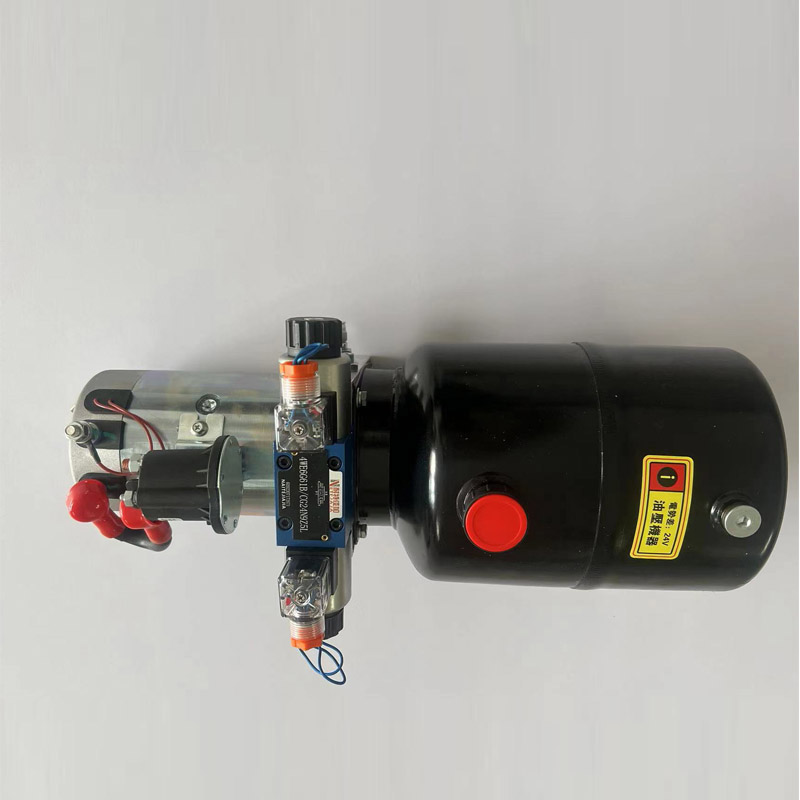Jul . 30, 2024 03:43 Back to list
Leading Manufacturers of Hydraulic Cylinders for Steering Applications in Various Industries
Hydraulic Cylinder for Steering Manufacturers Innovations and Applications
Hydraulic cylinders are essential components in various machines, particularly in automotive and industrial applications. Among their multiple uses, one of the most vital is in steering systems, where hydraulic cylinders aid in maneuverability and control. This article explores the role of hydraulic cylinder manufacturers in enhancing steering systems and discusses the innovations and applications in this crucial sector.
Understanding Hydraulic Cylinders in Steering Systems
A hydraulic cylinder is a type of linear actuator that converts hydraulic energy into mechanical energy, producing a force that moves a piston within a cylindrical chamber. In vehicles, hydraulic cylinders are integral to power-assisted steering systems, providing the necessary force to ease steering efforts, especially during low-speed maneuvers. This technology ensures smoother handling, reduces driver fatigue, and increases safety.
The Role of Manufacturers
Manufacturers of hydraulic cylinders for steering systems play a pivotal role in the automotive industry. They are responsible for designing, producing, and testing hydraulic cylinders that meet strict quality standards and performance requirements. These manufacturers must consider several factors, including the material used, cylinder design, seal technology, and hydraulic fluid compatibility. Robust manufacturing processes ensure that the hydraulic cylinders can withstand high pressures and harsh operating conditions.
Key manufacturers often employ advanced technologies such as Computer-Aided Design (CAD) and Finite Element Analysis (FEA) in their design processes, enabling them to optimize cylinder performance and longevity. Moreover, many manufacturers focus on reducing weight while maintaining strength, as lightweight components contribute to overall vehicle efficiency.
Innovations in Hydraulic Cylinder Technology
hydraulic cylinder for steering manufacturers

Recent advancements in hydraulic cylinder technology have significantly improved the performance and efficiency of steering systems. Innovations include the development of electronic control systems that allow for adaptive steering responses based on various driving conditions. This technology enhances vehicle handling and stability, making modern vehicles safer and more enjoyable to drive.
Another area of innovation is the use of high-strength materials and advanced sealing solutions, which extend the lifespan of hydraulic cylinders while minimizing the risk of leaks. Improved surface treatments, such as hard coating and corrosion resistance, are also critical to ensuring reliability and durability in diverse environments.
Moreover, manufacturers are increasingly focusing on eco-friendly practices, designing hydraulic cylinders that require less hydraulic fluid, thus minimizing environmental impact. These efforts align with the automotive industry's broader shift toward sustainability and reduced carbon emissions.
Applications Beyond Automobiles
While the automotive industry remains the primary market for hydraulic cylinders used in steering systems, their applications extend to various sectors. Agricultural machinery, construction equipment, and marine vessels rely on hydraulic steering systems, ensuring precise control in demanding conditions. As these industries evolve, the demand for high-performance hydraulic cylinders continues to grow.
Hydraulic cylinder manufacturers are also exploring opportunities in the electric vehicle (EV) sector. As EVs become more prevalent, there is a need for innovative steering solutions that integrate seamlessly with electric steering systems. This trend is pushing manufacturers to develop multi-functional hydraulic products that can work in conjunction with electric power assistance to enhance overall vehicle performance.
Conclusion
The role of hydraulic cylinder manufacturers in steering systems is crucial for ensuring optimal control, safety, and performance in various vehicles. With ongoing innovations in technology and materials, these manufacturers are not only improving the efficiency and reliability of hydraulic cylinders but also contributing to the advancement of the automotive industry towards a more sustainable future. As they adapt to emerging trends and technologies, hydraulic cylinder manufacturers are poised to play a significant part in shaping the future of steering systems across multiple sectors.
-
Fork Lift Power Units - Hebei Shenghan | Efficiency, Reliability
NewsJul.13,2025
-
1.5-Ton Turbocharged Cylinder-Hebei Shenghan|Hydraulic Solution,Energy Efficiency
NewsJul.13,2025
-
Auto Hoist Power Units-Hebei Shenghan|Efficiency&Industrial Lifting
NewsJul.13,2025
-
Double Acting Power Units-Hebei Shenghan|Hydraulic Solutions,Industrial Efficiency
NewsJul.13,2025
-
1.5 Ton Lifting Cylinder 70/82-40-290-535 - High-Performance Hydraulic Solution | Hebei Shenghan
NewsJul.13,2025
-
Fork Lift Power Units - Hebei Shenghan | Efficiency&Reliability
NewsJul.13,2025
